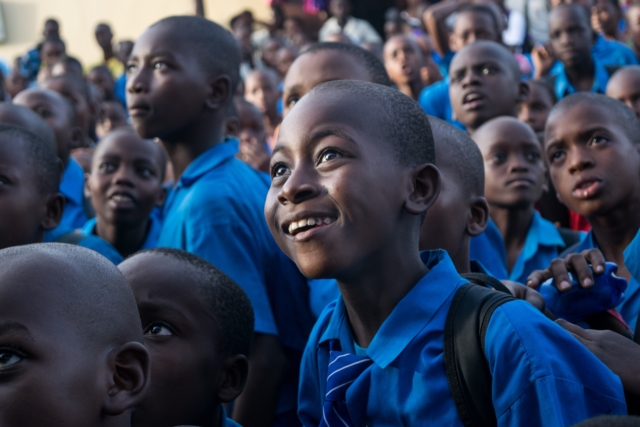Liberia’s First National Learning Assessment System
 Education quality and learning outcomes are often key to explaining income differences across countries. In sub-Saharan Africa, about 88% of primary and lower secondary school children are “not proficient in reading.” Liberia’s Ministry of Education and the U.S.-based nonprofit Innovations for Poverty Action (IPA) are developing Liberia’s first National Learning Assessment System (NLAS) for the primary learning level. This assessment will help Liberia’s schools switch from a content-based curriculum to a competency-based curriculum that values learning over memorization. The assessment itself will highlight which areas students are learning least to hopefully close the learning gap.
Education quality and learning outcomes are often key to explaining income differences across countries. In sub-Saharan Africa, about 88% of primary and lower secondary school children are “not proficient in reading.” Liberia’s Ministry of Education and the U.S.-based nonprofit Innovations for Poverty Action (IPA) are developing Liberia’s first National Learning Assessment System (NLAS) for the primary learning level. This assessment will help Liberia’s schools switch from a content-based curriculum to a competency-based curriculum that values learning over memorization. The assessment itself will highlight which areas students are learning least to hopefully close the learning gap.
Education’s Role in Poverty Reduction
Education is important for reducing poverty because it increases the rate of return in the economy. Improving access and quality of education ensures a greater development of skills among the population. Using education as a tool for breaking cycles of poverty, the nation’s standard of living increases, accelerating economic growth.
With education, those employed in the formal sector of the economy have the potential to earn higher wages and secure higher-paying jobs as their careers progress. Illustrating this point, every “one year of education is associated with a 10% increase in wages.” Furthermore, research finds that “primary education has a higher rate of return than secondary education.”
Education in Liberia
Emerging from a destructive period of civil unrest and the Ebola epidemic in 2015, the Liberian education system has suffered considerably. Only 44% of primary-age students currently attend school in Liberia. Of the children who attend school, only 54% complete primary education. In addition, there are no national school quality standards in Liberia. According to the Global Partnership for Education, the largest global fund dedicated to education initiatives, “resourcing at county and district levels require improvement.” With the understanding that education is the key to reducing poverty, it is imperative for Liberia’s education system to improve.
The National Learning Assessment System’s Purpose
The purpose of the NLAS is to try to maximize primary education learning by assessing areas where learners are not performing well. This will create the framework for a national standard. Further, the assessment will serve as a reference point for Liberia’s new national curriculum and help the government decide which reforms to undertake in order to produce beneficial educational outcomes.
Pilot Assessment
In a trial of the assessment with the Liberian government, the IPA reached 874 students across six Liberian counties. Students received both oral and written assesments. The healthy distribution of scores suggested that the assessment was neither too difficult nor too easy. Overall, the results found that “in the oral exam, the average sixth grader answered 36% of the questions correctly in language and 61%” in mathematics. However, in the written assessment, the average sixth grader achieved 47% in language and 40% in mathematics.
Given the fact that more than 90% of students “were over-age for their grade,” the trial illustrates that assessments should not be organized by age. Moreover, because of the significant difference in scores between the oral assessment and written assessment, students should be assessed on both types. The pilot project generally recommends written assessments as these tests are “cheaper and easier to administer” but emphasizes the importance of oral examinations to assess oral fluency.
Education as the Key to Poverty Reduction
Initiating a national learning assessment strategy is the first step toward rebuilding Liberia’s education system after years of turmoil. The assessment provides a basis for education reform according to the learning styles, literacy levels and knowledge gaps among students. More importantly, the initiative demonstrates the government’s interest in the advancement of Liberia’s youth and the hope to help disadvantaged citizens rise out of poverty.
– Annarosa Zampaglione
Photo: Pixabay
